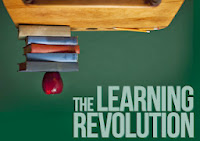Sunday, April 6, 2014
Project #10
My interview for this assignment is with my Aunt, who is also a third grade teacher at Bonnie Ecole Elementary in Slidell, Louisiana. Mrs. Kathy Fortier has been teaching for thirty three years and thought she would be perfect for my interview! I chose to use both project-based learning and the use of technology in the classroom as topics for our interview.
Wednesday, April 2, 2014
C4K March
My first C4K student I was assigned was Nahea. Her recording was the first one she had ever done! Her story was about all the things she can do on the ipad. I am personally so proud of such a young person who has accomplished that and then be able to share it with us all the way from Auckland, New Zealand!
My next assigned student in Auckland, New Zealand was Charles. Charles is in Class 9 at Pt England School. His blog post was about his swimming lesson. He does a great job using adjectives to describe every little thing about what leads up to the swimming lesson and the swimming lesson itself. He also adds a reflection at the end of his blog post. His reflection was,"I think I did very good today". Charles seems like such a bright young boy who has such a positive outlook.
My third and final student assigned for march was Byron. Byron has been blogging since class four and he is currently in class seven/eight. Byron's blog post contained most important points on the subject of warriors versus dragons. It is such a great thing that student's can recognize what main points make up a summary. Or to be able to pinpoint the most valuable information in a certain topic.
I really enjoyed reading my assigned blog posts from the students all the way from Auckland, New Zealand. They show such promise in their work and it is really something these young students are technologically advanced. They are probably more tech savvy than some college students. In that case, these young scholars have substantially impressed me!
My next assigned student in Auckland, New Zealand was Charles. Charles is in Class 9 at Pt England School. His blog post was about his swimming lesson. He does a great job using adjectives to describe every little thing about what leads up to the swimming lesson and the swimming lesson itself. He also adds a reflection at the end of his blog post. His reflection was,"I think I did very good today". Charles seems like such a bright young boy who has such a positive outlook.
My third and final student assigned for march was Byron. Byron has been blogging since class four and he is currently in class seven/eight. Byron's blog post contained most important points on the subject of warriors versus dragons. It is such a great thing that student's can recognize what main points make up a summary. Or to be able to pinpoint the most valuable information in a certain topic.
I really enjoyed reading my assigned blog posts from the students all the way from Auckland, New Zealand. They show such promise in their work and it is really something these young students are technologically advanced. They are probably more tech savvy than some college students. In that case, these young scholars have substantially impressed me!
Tuesday, April 1, 2014
C4T #3
Brian Bennet's first post, The Problem with Evolution, discusses that sometimes teachers will go over subjects in the classroom that are just to vague. Since the subjects are so vague it is harder for the students to grasp the content of the material and really learn from it. Bennet then brings up the simulation called PhET Simulations. "They're interactive models of topics like evolution, but also chemistry, earth science, and physics, among others. These would be very helpful if you're in a science classroom. These simulation use repetitiveness which makes kids think it's a game. The simulations keep students engaged and lets kids enjoy learning.
Bennett's second post, Living the Connected Life, he describes the anxiety you get when you are not being able to know what is going around you all the time. For example, not being on your cell phone texting, tweeting, and face-booking. he also states that the use of all of these social medias increases your PLN. So, when you aren't connected you are missing out on some PLN opportunities. I really enjoyed both of Brian BEnnett's blog posts that I read. I really enjoy when I am able to connect to a fellow blogger!
Bennett's second post, Living the Connected Life, he describes the anxiety you get when you are not being able to know what is going around you all the time. For example, not being on your cell phone texting, tweeting, and face-booking. he also states that the use of all of these social medias increases your PLN. So, when you aren't connected you are missing out on some PLN opportunities. I really enjoyed both of Brian BEnnett's blog posts that I read. I really enjoy when I am able to connect to a fellow blogger!
Friday, March 28, 2014
Project #15
This project is another individual lesson plan based on the subject of health. It is a lesson plan specifically designed for third or fourth graders. It lasts up to two days, but can last up to three days if you need it to. The class is taught all about the food pyramid and the simple fact that humans need nutrients for the body. This lesson plan is great to instill in young kids so they can maintain a healthy lifestyle! To view the lesson plan, you can go to my Google site.
Wednesday, March 26, 2014
Tuesday, March 25, 2014
Blog Post #10
Sir Ken Robinson's lecture, Bring On the Learning Revolution!, was absolutely engaging, extremely relatable, and funny. However, most importantly informational. He makes very valid points toward education in today's generation. Robinson states in his lecture that education should be changed. In order to do that, normally we would change it or fix what is wrong. However, in Bring On the Learning Revolution, the better solution would be to start new again. This brings the solution to a revolution for education. Robinson uses the saying,"rise with it not to it", which I love. It shows that you must start anew and act anew, by creating new ways for education.
One of the most important things I took from Sir Ken Robinson's speech was how the world sees education. For example, everyone graduates college in four years. I personally can relate to that because everyone learns differently. Which can lead to being a little behind others or more ahead than some peers. Society needs to know that it is okay to not be on a strict schedule when trying to complete school. You can get a degree right out of high school, or 20 years later. Human flourishing is not a mechanical process. You cannot predict the outcome of human development. Also, timing should not matter because as Robinson says,"a three-year old is not half of a six-year old". A three-year old is a three-year old, someone who may or not know things depending on what they have come across since entering the world. Once again, everyone learns everything differently and definitely at their own pace.
Sir Robinson's states the perfect example for how our generation is so technological. He asks the audience who all is over and under the age of twenty-five. After that, he asks, out of the above twenty-five year old age group, who is wearing a wristwatch. Someone who was over the age of twenty-five in the year 2010 was not born in such a technology savvy generation. Therefore, they have never depended on their phone for time. Those people depend on their wristwatch. Robinson has a twenty year old daughter and she stated to him that she does not need a watch due to the fact that it only does one thing. This is a prime example why our generation today is advanced in technology. Next, he talks about passion. He defines passion as something that excites our soul and that it is different in every person. Passion is when you enjoy something so much that an hour feels like five minutes. It is doing what you love. I love that Robinson mentioned that into his lecture because it is important to try and do what you love with your life.
Robinson's speech made a huge impact on me. I have never been able to relate so much with a lecture that we have been assigned to. There is nothing more rewarding than being able to connect with a speaker like that, and then being able to learn so much from it. I will carry what I have learned from Sir Ken Robinson's lecture into my teaching days and make sure to incorporate them into every day life and to always remember to keep my passion in mind.
Subscribe to:
Posts (Atom)





